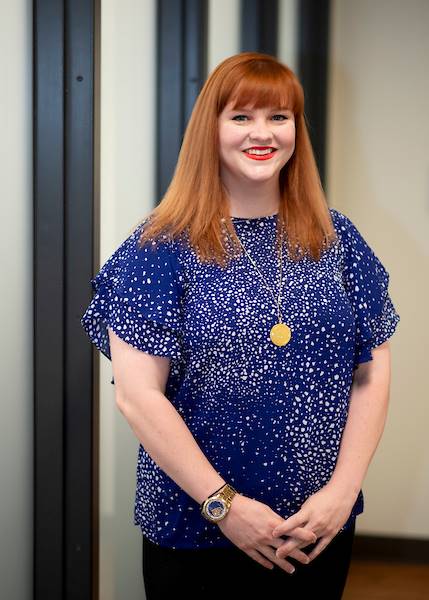Special Education Programs (K-12)
The mission of the Special Education Program is to prepare knowledgeable educators who understand child development and variations in student abilities, skills, and maturation; and who use that knowledge to plan, implement, and evaluate educational programs based on individual student needs, family input, and current research.
WCU's Special Education Program offers degree programs at the undergraduate and graduate levels, as well as licensure-only certificate programs and add-on licensure options.
Undergraduates can earn a Bachelor of Science in Education (B.S.Ed.) degree in Inclusive Education, which leads to recommendation for initial North Carolina (NC) licensure in K-12 Special Education: General Curriculum and K-6 Elementary Education Grades.
Adapted Curriculum Add-on for Inclusive Education Majors
For undergraduate student who are pursuing the BSED in Inclusive Education, we offer an add-on licensure program for Adapted Curriculum (AC). The AC add-on prepares students to instruct learners with severe disabilities in grades K-12. Students take four courses exploring topics such as understanding students with severe disabilities, positive behavioral supports, teaching life skills and academics to learners with significant intellectual disabilities, using assistive technology, and assessing students with severe disabilities. The courses are offered in a face-to-face format on the WCU campus. The program requires 12 student credit hours of study (four courses), that can be completed in four consecutive semesters.
Academically or Intellectually Gifted (AIG) Add-on for All Education Majors
Undergraduates or graduate students can add on licensure in K-12 Academically or Intellectually Gifted (AIG) education. Teachers who hold or are eligible for a NC license in any area can participate in this online program. Students in the AIG program learn techniques for screening, identifying, and evaluating gifted learners; explore models and methods for differentiating instruction; learn how to promote creativity and problem solving; and learn how to advocate for gifted students regardless of issues of gender, disability, ethnicity, socioeconomic status, and language.
WCU offers an 18-hour minor in Special Education through which student pursuing majors across campus can learn best practices for working with students with learning differences.
Students who have earned undergraduate degrees in Special Education or other education areas can enter the Master of Arts in Education (M.A.Ed.) degree program and earn master’s level North Carolina licensure in one of three areas: (1) Mild-to-Moderate Disabilities, (2) Severe/Profound Disabilities, or (3) Gifted, Creative, and Innovative Education.
Students who have earned a bachelor's degree in a field other than education can pursue the Master of Arts in Teaching (M.A.T.) degree and earn both their initial (A) and master's (M) level licensures in either K-12 Special Education: General Curriculum or K-12 Special Education: Adapted Curriculum.
WCU offers graduate-level certificate programs that prepare students to be recommended for K-12 Special Education licenses. The courses are part of a larger master's degree program (M.A.T.), and qualifying students have th option of applying to the master's degree program to complete their graduate degree.
For students hoping to earn a teaching license for the first time and/or satisfying requirements of a residency license, the Special Education: General Curriculum or Special Education: Adapted Curriculum graduate certificate programs allow students to complete their licensure coursework while working toward applying to a master's degree program.
The Special Education: General Curriculum certificate is designed for students who want to work in grades K-12 with students who have mild-to-moderate disabilities, while the Adapted Curriculum certificate prepares educators to work with K-12 students who have severe/profound disabilities.
WCU offers a graduate-level certificate program that leads to an AIG license, which can be added to any academic area license. The program consists of 12 graduate hours in gifted education. All courses are online with the exception of a one-week field experience that takes place at WCU’s Cullowhee campus in June. The courses are part of a larger master’s degree program (M.A.Ed.), and qualifying students have the option of applying to the master’s degree program to complete their graduate degree.
In addition to these options, the Special Education Graduate Program offers teachers a Professional Development Credential in three critical skill areas:
- Creativity and Differentiation
- Response to Intervention for Social and Emotional Behavior
- Collaboration with Families and Professionals
- Autism
- Instructional Technology
This online professional development opportunity is highly interactive and will help address real issues teachers face in today's classrooms.

Bridget Lopez
Academic Advisor

